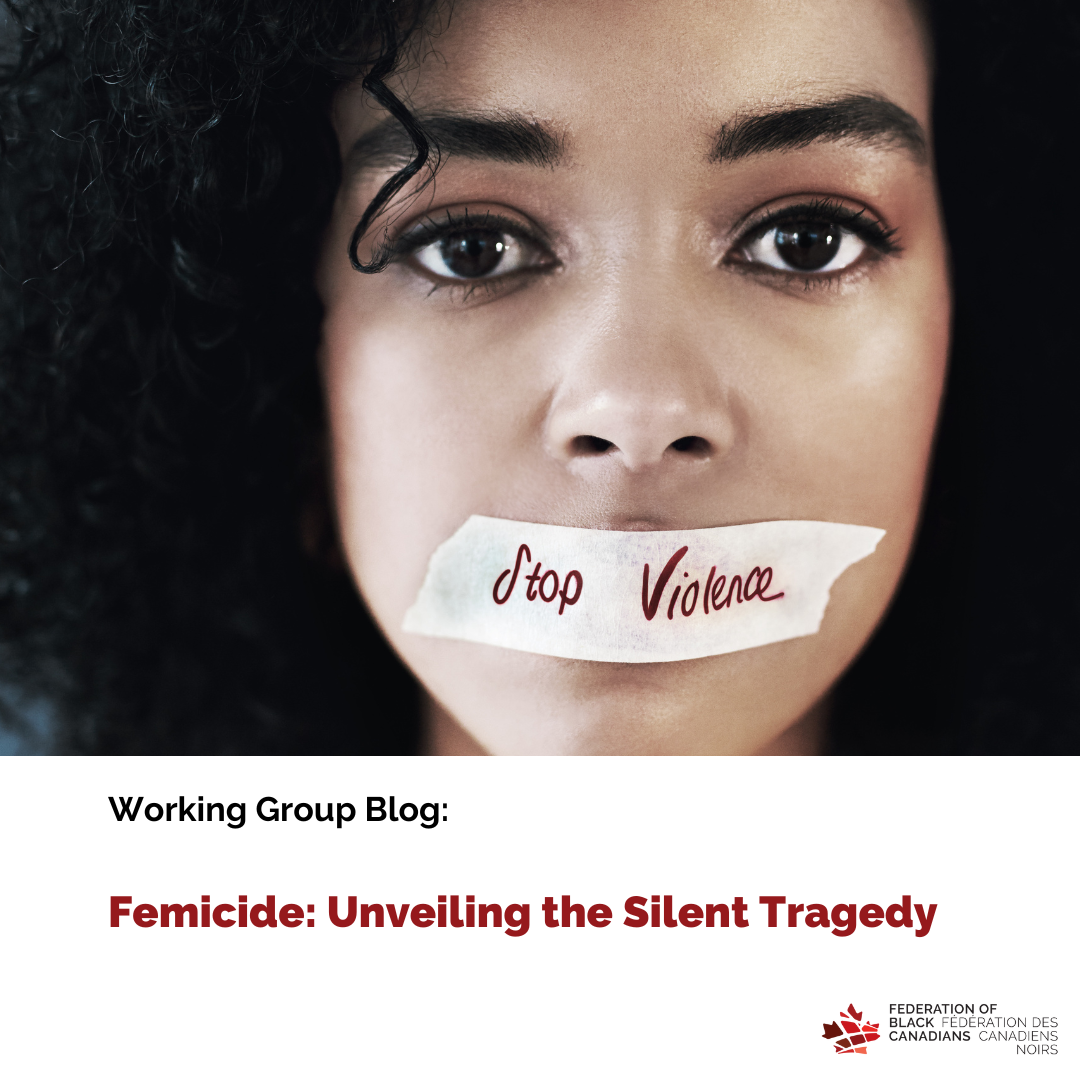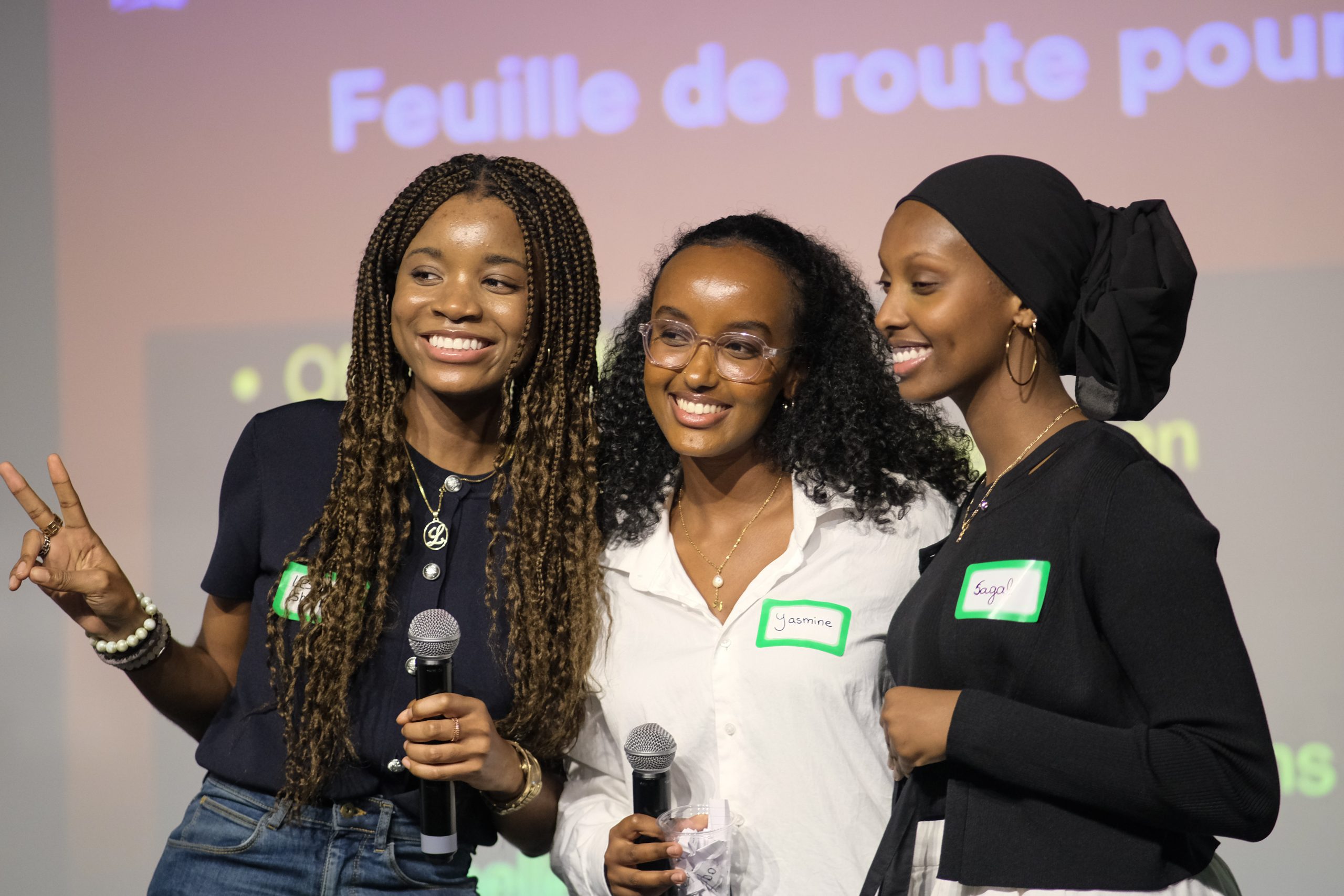Written by: Morola Solar
Women are being mercilessly erased at a rate that is disturbing in a world where every life should matter. Femicide, the deliberate killing of women because of their gender, often intersects with racism, domestic violence, and lack of media attention. Black women continue to be disproportionately affected by this issue, and despite increased awareness, their cases are frequently overlooked or underreported.
Recent statistics reveal a harrowing reality: in 2022 alone, 173 women in Canada fell victim to murder, many at the hands of intimate partners. Shockingly, Indigenous and Black women face an even higher risk, their stories often relegated to the shadows. While the world preaches equality, these women become mere statistics, their names whispered in grief, their voices drowned out by the silence of indifference.(Statistics Canada)(Statistics Canada)
Take the case of Christina Idowu, a promising 3rd year student at the Federal University of Agriculture, Abeokuta, Nigeria, was tragically murdered by a trusted friend. On August 19, 2024, Christina set out for her industrial training at the University of Lagos but was abducted along the way. Her captor, Ayomide Adeleye, later demanded a ransom, torturing her family by sending photos of her after her death, despite receiving part of the ransom(FIJ)(Legit.ng – Nigeria news.). Christina’s death highlights the cruel reality faced by many women whose stories rarely make headlines.
Justina Nkang, a University of Port Harcourt student enrolled in a 300-level biochemistry course, was discovered deceased in her boyfriend Damian’s residence. Her body was located in his apartment; four days after her disappearance was reported, the investigators discovered her mutilated remains. A bad smell coming from Damian’s house prompted a neighbour to call the police, who then placed Damian under arrest. The terrible reality that many women endure in violent relationships is brought to light by this horrifying conduct, which seems to have been motivated by ritualistic reasons.(The Herald)(Channels Television).
Rebecca Cheptegei was tragically killed in a horrific act of gender-based violence. After her ex-boyfriend set her on fire, she sustained severe burns. The ex-boyfriend who committed this violent deed passed away from burns he received. The incident, in which yet another lady was killed in retaliation, is a tragic example of intimate partner violence. The lack of extensive media coverage about Rebecca’s death is a reminder of how the stories of Black women are often sidelined, despite the deep tragedy of their experiences. Situations such as hers highlight the critical need for increased awareness of the violence and systemic indifference that women of colour frequently experience.For further details, you can read more about Rebecca Cheptegei’s story here.
Sonya Massey’s story adds another layer of tragedy to the femicide issue. She was shot by police in a tragic incident that reflects systemic failures in law enforcement, especially when dealing with Black women and mental health crises. The officers misinterpreted her actions as threatening, a reflection of racial biases and inadequate crisis management training. This case emphasizes the need for reforms in how police handle such situations, underscoring the persistent danger Black women face from both intimate and state violence(Ms. Magazine).
This lack of media coverage is a painful reminder of the systemic racism that runs deep in our society. While missing and murdered white women often spark national attention, Black women’s stories remain hidden, forgotten in the noise of other news . This indifference perpetuates violence, as it sends a clear message: Black women’s lives are not valued equally.
In Canada, Black women and girls are disproportionately affected by violence, but their voices are rarely heard. Black women are three times more likely to be victims of domestic violence than their white peers , yet the conversation around intimate partner violence seldom includes them. Every day, Black women face the risk of violence, and when they become victims, they are met with silence, making it harder for their families to seek justice or even basic acknowledgment.
We must demand change. The violence against women—especially Black women—needs to be addressed through both systemic reform and cultural shifts. It starts with making their stories heard. Their stories deserve to be told. We need to challenge the media, policymakers, and ourselves to do better—to not only protect Black women but to give them the dignity and respect in death that they were so often denied in life.
Femicide is not just a women’s issue; it is a societal crisis that demands our collective attention. Until we confront this reality, more lives will be lost, more families will mourn in silence, and more women will vanish without a trace. Let us heed the call to action, listen to their stories, and stand in solidarity against the scourge of femicide.
Together, we can make a difference. It starts with awareness, it starts with empathy, and it starts with us. Join the movement to end femicide and ensure that every woman’s life is valued, cherished, and protected. The time to act is now.




